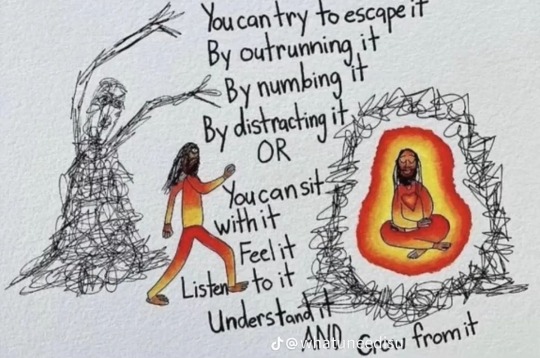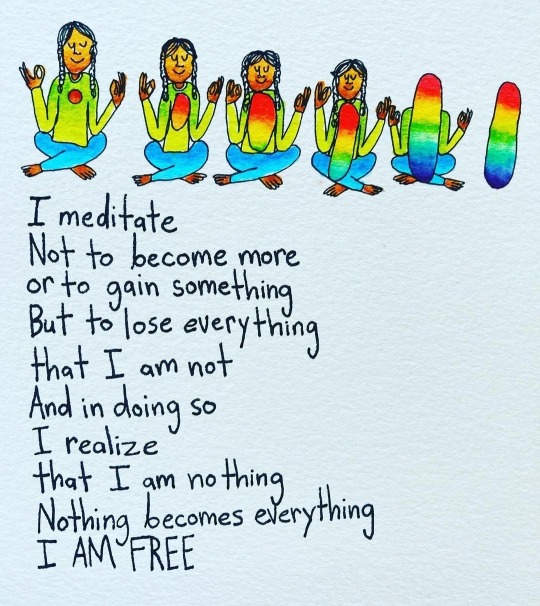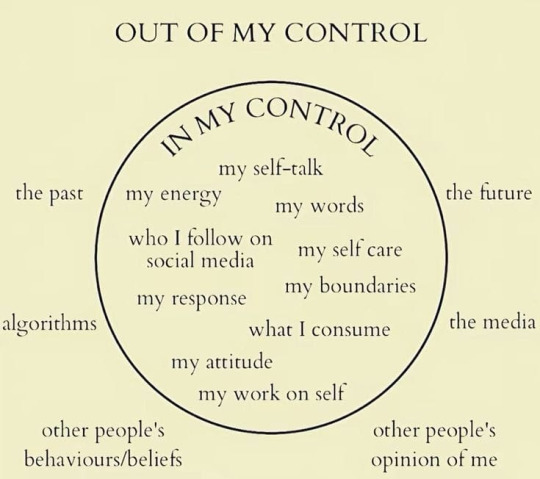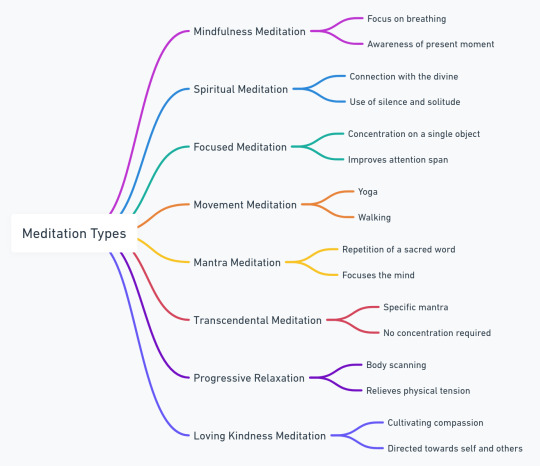#Unique Breathing Techniques To Reduce Anxiety
Explore tagged Tumblr posts
Text
The Art of Tantra Massage

The Art of Tantra Massage: A Gateway to Deep Healing and Connection
Tantra Massage is more than just a physical experience—it is a sacred practice that nurtures deep relaxation, intimacy, and spiritual awakening. Rooted in the ancient wisdom of Tantra, this transformative massage technique combines touch, breathwork, and energy flow to cultivate a profound sense of connection with oneself and others.
What is Tantra Massage?
Tantra Massage is a holistic practice that integrates mindful touch, energy activation, and meditative presence. Unlike conventional massages that focus solely on muscle relaxation, Tantra Massage engages the body's subtle energy centers, known as chakras, to release emotional and energetic blockages. This allows for a deeper state of relaxation, heightened pleasure, and a renewed sense of vitality.
The Benefits of Tantra Massage
Emotional Healing: Tantra Massage helps release stored emotions, past traumas, and stress, creating space for emotional clarity and freedom.
Deep Relaxation: The slow, intentional strokes combined with breathwork bring a state of deep relaxation, reducing anxiety and promoting mental peace.
Enhanced Intimacy: Whether received individually or as a couple, Tantra Massage fosters deeper emotional and physical intimacy, enhancing relationships.
Increased Energy Flow: By stimulating energy points and chakras, this practice awakens dormant energies and promotes a heightened state of awareness and pleasure.
Self-Discovery: Tantra Massage is a journey inward, allowing individuals to connect with their own sensuality, desires, and spiritual essence.
What to Expect in a Tantra Massage Session

A Tantra Massage session is a guided experience in a safe and sacred environment. It may include:
Gentle and mindful touch using warm oils.
Guided breathing techniques to enhance energy flow.
Chakra activation and energy work to restore balance.
Deep relaxation practices to dissolve stress and tension.
Every session is uniquely tailored to individual needs, ensuring a comfortable and enriching experience.
Experience Tantra Massage in India
If you are looking to explore the profound benefits of Tantra Massage, our experienced practitioners offer personalized sessions in India. Whether you seek relaxation, healing, or a deeper connection with your inner self, Tantra Massage can be a transformative experience.
Any female, male, or couple can book a session with us.
Connect with us on Telegram to learn more and book a session: Join Here
Embark on a journey of self-discovery, healing, and bliss through the sacred art of Tantra Massage.
#tantra #tantramassage #massage #intimacy #couple#sexy and beautiful #hot as hell #so hot and sexy #sexy pose #beautiful body #amazing body #india #mumbai #bangalore #ahmedabad
#bollywood#tantra#dailybollywoodqueens#tantramassage#massage#couple#intimacy#intimate#india#bollywoodedit#so hot and sexy#sexy and beautiful#ahmedabad#mumbai#bangalore
32 notes
·
View notes
Text


The Many Faces of Meditation: Exploring Its Types and Scientific Backing
Meditation is often painted with a broad brush, as if it’s a single practice. But in reality, meditation encompasses a wide range of techniques, each with its unique focus and benefits. Whether you’re looking to relax, enhance focus, or explore spiritual depths, there’s likely a type of meditation that suits your needs.
Below, we’ll dive into some of the most popular forms of meditation, their specific goals, and the science backing their benefits.
1. Mindfulness Meditation
Mindfulness meditation is one of the most popular and accessible forms. It involves paying attention to the present moment nonjudgmentally, often focusing on your breath, bodily sensations, or surroundings.
• What It Does: Helps cultivate awareness and reduces mind-wandering.
• Scientific Backing: A study published in JAMA Internal Medicine (2014) found that mindfulness meditation significantly reduces symptoms of anxiety, depression, and pain. Moreover, research in Social Cognitive and Affective Neuroscience (2011) revealed that regular mindfulness practice increases gray matter density in the brain, particularly in areas associated with learning, memory, and emotional regulation.
2. Transcendental Meditation (TM)
TM involves silently repeating a mantra (a word or phrase) to settle the mind into a state of profound rest and relaxation. It’s highly structured and requires training from certified teachers.
• What It Does: Induces a state of restful alertness and reduces stress.
• Scientific Backing: A meta-analysis in Psychosomatic Medicine (2012) showed that TM can lower blood pressure, making it a valuable tool for cardiovascular health. Additionally, TM has been linked to reduced levels of cortisol (the stress hormone) and improved focus.
3. Loving-Kindness Meditation (Metta)
This practice centers on generating feelings of love and compassion toward yourself and others. It often involves repeating phrases like, “May I be happy,” “May you be safe,” and extending those wishes to all beings.
• What It Does: Boosts empathy, reduces anger, and enhances feelings of social connection.
• Scientific Backing: A study in Psychological Science (2008) showed that practicing loving-kindness meditation increases positive emotions over time, which in turn builds personal resources like resilience and improved relationships.
4. Body Scan Meditation
A type of mindfulness meditation, this practice involves systematically focusing on different parts of your body, noticing sensations, and releasing tension.
• What It Does: Reduces physical stress and enhances body awareness.
• Scientific Backing: Research in Biological Psychology (2010) suggests that body scan meditation significantly decreases cortisol levels and reduces symptoms of chronic pain.
5. Zen Meditation (Zazen)
Rooted in Buddhist tradition, Zen meditation involves seated meditation, focusing on the breath and observing thoughts as they arise and pass without judgment.
• What It Does: Promotes deep mental clarity and insight.
• Scientific Backing: A study in Frontiers in Psychology (2012) found that long-term Zen meditation practitioners showed increased attentional stability and reduced mind-wandering compared to non-meditators.
6. Yoga Nidra (Guided Sleep Meditation)
Often called “yogic sleep,” Yoga Nidra involves guided meditation designed to bring you into a state of deep relaxation between wakefulness and sleep.
• What It Does: Facilitates stress relief and improves sleep quality.
• Scientific Backing: A study in International Journal of Yoga (2013) found that Yoga Nidra reduces anxiety and improves heart rate variability, a key indicator of stress resilience.
7. Focused Attention Meditation
This practice involves concentrating on a single object, sound, or sensation, like a candle flame, mantra, or the rhythm of your breath.
• What It Does: Builds concentration and reduces mind-wandering.
• Scientific Backing: Research in Nature Reviews Neuroscience (2015) highlights that focused attention meditation strengthens the brain’s prefrontal cortex, which plays a key role in decision-making and attention regulation.
8. Movement-Based Meditation (Tai Chi and Qigong)
Unlike still meditation, these involve flowing movements synchronized with the breath.
• What It Does: Combines physical exercise with mental focus, reducing stress and enhancing balance.
• Scientific Backing: Studies in BMC Complementary and Alternative Medicine (2014) indicate that Tai Chi and Qigong reduce symptoms of anxiety, depression, and chronic pain while improving physical health markers like balance and flexibility.
How to Start?
If you’re unsure where to begin, start small. Dedicate 5–10 minutes daily to exploring one practice. Apps like Headspace or Insight Timer can guide you, or you can find countless free resources online.
Meditation isn’t about being perfect or clearing your mind completely; it’s about showing up, being present, and exploring what works for you. As science continues to unravel its benefits, one thing is clear: meditation is a practice that nourishes both the mind and body.
What type of meditation do you practice (or want to try)? Let’s chat in the comments!
Sources
• Goyal, M., et al. (2014). JAMA Internal Medicine.
• Holzel, B. K., et al. (2011). Social Cognitive and Affective Neuroscience.
• Fredrickson, B. L., et al. (2008). Psychological Science.
• Zeidan, F., et al. (2010). Biological Psychology.
#healing#emotions#health and wellness#healthylifestyle#mental health#mental wellness#positive mental attitude#psychology#self care#self growth#self love#self help#self improvement#mental heath support#mental heath awareness#mental help#meditation#meditative#how to meditate#meditatedaily#healthyliving#health & fitness#public health#health tips#healingtips#psychology tips
19 notes
·
View notes
Text
Acing Exams: The Ultimate Study Hacks Every Student Should Know
Girls in Finance project server // other posts
Studying for exams doesn't have to be a daunting task. Equip yourself with these proven study hacks to boost your preparation and increase your chances of acing those exams:
1. Prioritize Your Material:
Identify key concepts and focus on high-priority topics outlined in your syllabus.
Break down larger subjects into manageable sections to avoid feeling overwhelmed.
2. Create a Strategic Study Schedule:
Develop a realistic study schedule that considers your peak productivity hours.
Use techniques like the Pomodoro Technique to break study sessions into focused intervals with short breaks.
3. Active Learning Techniques:
Engage in active learning methods, such as teaching the material to someone else or creating flashcards.
Utilize mnemonic devices and acronyms to remember complex information.
4. Diversify Your Resources:
Explore various learning materials, including textbooks, online resources, videos, and supplementary materials.
Choose resources that resonate with your learning style for a more effective study experience.
5. Practice with Past Papers:
Familiarize yourself with the exam format by practicing with past papers or sample questions.
Analyze your mistakes and focus on improving in areas where you may be struggling.
6. Utilize Visualization Techniques:
Visualize complex concepts or create mind maps to establish connections between ideas.
Use color-coded diagrams and charts to enhance your understanding of relationships within the material.
7. Join Study Groups:
Collaborate with peers in study groups to gain different perspectives and share insights.
Teaching and discussing topics with others can reinforce your own understanding.
8. Healthy Lifestyle Habits:
Ensure you get adequate sleep to support memory consolidation.
Maintain a balanced diet and exercise regularly to keep your mind and body in optimal condition.
9. Mindfulness and Stress Management:
Practice mindfulness techniques, such as deep breathing or meditation, to manage stress.
Break down your study sessions into smaller, manageable tasks to reduce anxiety.
10. Reward Yourself:
Incorporate rewards into your study routine to stay motivated.
Treat yourself to breaks or small rewards after completing challenging study sessions.
Remember, everyone's study journey is unique, so feel free to tailor these study hacks to fit your personal preferences and learning style. Consistency and dedication to your study routine will play a key role in your success. Good luck!
Join our Girls in Finance project if you want to learn more about studying finance and the financial world <3
#studyblr#studygram#motivation to study#study tips#study notes#studying#100 days of productivity#studyinspo#study blog#exams#finance girl#findyourthing#finance
118 notes
·
View notes
Text
★~(◠‿◕✿)Tarot observations - Mental Health Issues indicators
Hello, everyone! Misty - your tarot reader here✨🔮🌠🃏🌟!
©mistytarot0919 - all rights reserved. do not copy, translate, alter, or repost my work.
Please REBLOG if you find this information useful! ༄˖°🪐.ೃ࿔*
When this happens, it is important for the person seeking guidance from the Tarot to remember that the Tarot is simply a tool for reflection and insight, and should not be used as a substitute for professional mental health support.
It is always advisable to consult with a therapist or counselor if you are struggling with mental health issues!!!
That being said, the Tarot can still be a helpful tool in managing and understanding these issues. They can also help to bring awareness to underlying issues that may be contributing to your mental health struggles.
For other posts like this, you can check here (ᴗ͈ˬᴗ͈)ꕤ.゚
For other tarot content you can find more over here(❁´◡`❁).
Misty ε(´。•᎑•`)っ 💕
꧁ ༺ ── ˚₊‧꒰ა ☆ ໒꒱ ‧₊˚ ── ༻ ꧂꧁ ༺ ── ˚₊‧꒰ა ☆ ໒꒱ ‧₊˚ ── ༻ ꧂

MOON REVERSED
The Moon card, when reversed in tarot, can signify confusion, illusion, and hidden fears or unresolved issues. It may indicate a need to delve deeper into one's subconscious to address underlying mental health challenges such as fear, anxiety, and depression that have not been fully explored or resolved.
In such a situation, it is crucial to recommend that the client seeks support from a trained professional, like a hypnotherapist, who can assist in uncovering and working through these deep-seated concerns.
Encouraging the client to engage in therapy sessions with a hypnotherapist can offer a unique opportunity to explore the hidden aspects of their psyche, gain insight into their fears and anxieties, and develop coping strategies to navigate and overcome these challenges. This approach can help the individual untangle complex emotional issues, release deep-seated fears, and embark on a healing journey towards improved mental well-being.
By partnering with a trained hypnotherapist, the client can receive personalized support, guidance, and tools to confront and resolve their unresolved mental health issues, ultimately fostering a sense of clarity, empowerment, and emotional resilience. Seeking professional help is a proactive step towards self-discovery, healing, and growth on the path to mental wellness.
NINE OF SWORDS
The Nine of Swords in tarot often symbolizes anxiety, depression, and overwhelming negative thoughts that can lead to insomnia and heightened stress. This card reflects a state of mental anguish where one's inner dialogue is dominated by worries, self-doubt, and fear about everything that could go wrong.
For individuals experiencing anxiety and depression fuelled by negative self-talk, it is crucial to address these harmful thought patterns and find ways to manage stress and anxiety effectively.
In addition to therapeutic interventions, practicing relaxation techniques, such as deep breathing exercises, meditation, or gentle yoga, can help calm the mind and reduce stress levels. Creating a bedtime routine that promotes relaxation and good sleep hygiene can also aid in managing insomnia caused by anxiety and constant worrying.
By seeking support from mental health professionals, such as therapists or counselours specializing in cognitive-behavioural therapy, individuals can learn strategies to combat negative self-talk, alleviate anxiety, and improve overall well-being. Developing healthy coping mechanisms and self-care practices can empower individuals to navigate through challenging times and cultivate a more positive and balanced mindset.
NINE OF WANDS REVERSED
The Nine of Wands reversed in tarot can signify heightened paranoia and a sense of feeling persecuted or as if the world is working against you. This card suggests a state of defensiveness, suspicion, and deep-seated fear that can lead to irrational beliefs and a distorted perception of reality.
When paired with the Nine of Swords, which represents anxiety and negative self-talk, the combination may indicate a more severe manifestation of mental distress, potentially involving auditory hallucinations or hearing voices that contribute to the client's paranoia.
Treatment options may include therapy, medication, and supportive interventions aimed at managing paranoia, reducing auditory hallucinations, and promoting mental well-being. Collaborating with a multidisciplinary team of mental health experts can offer the client the necessary support and resources to navigate through complex mental health challenges and work towards healing and recovery.
By addressing these symptoms proactively and seeking appropriate mental health care, the client can gain insight into their experiences, receive effective treatment, and develop coping strategies to cope with paranoia, auditory hallucinations, and related mental health issues.
STAR REVERSED
The reversed Star card in tarot often symbolizes a lack of faith, hopelessness, and a sense of despair that can lead to feelings of deep sadness, depression, and anxiety. This card suggests a period of darkness and emotional turmoil where the individual may struggle to see light at the end of the tunnel or find solace in moments of difficulty.
Incorporating self-care practices, such as mindfulness, meditation, journaling, or engaging in activities that bring joy and relaxation, can help individuals nurture their emotional well-being and cultivate a sense of hope and resilience. Building a support network of friends, family, or mental health professionals can offer comfort, encouragement, and guidance during challenging times.
By acknowledging their feelings of hopelessness and taking proactive steps to prioritize their mental health, individuals can begin to regain a sense of optimism, self-compassion, and inner strength. It is crucial to remember that seeking help is a sign of courage and self-awareness, leading to the possibility of healing, growth, and renewed hope for a brighter future.
NINE OF CUPS REVERSED
The reversed Nine of Cups in tarot often signifies feelings of discontentment and sadness stemming from unmet emotional needs. This card suggests a sense of dissatisfaction and despair due to a perceived lack of fulfillment in one's emotional life, leading to feelings of depression and inner turmoil.
When encountering such emotions, it is vital for individuals to reflect on their emotional needs and take proactive steps to address them. Communicating openly with trusted individuals, such as friends, family, or therapists, can provide a platform to express feelings, seek support, and explore strategies to meet emotional needs effectively.
Engaging in self-care practices that nurture emotional well-being, such as setting boundaries, practicing self-compassion, and engaging in activities that bring joy and fulfillment, can help individuals navigate through feelings of discontentment and cultivate a sense of inner peace and balance.
Exploring therapy or counselling can also offer valuable insights, coping tools, and guidance to work through underlying issues contributing to emotional distress and identify constructive ways to enhance emotional fulfillment and overall well-being.
TEMPERANCE REVERSED
The reversed Temperance card in tarot can suggest imbalances in one's inner harmony, potentially indicating issues related to mental health, such as bipolar disorder or other conditions linked to chemical imbalances in the body and brain.
When this card appears reversed, it may serve as a reminder to pay attention to one's mental and emotional well-being, especially concerning any potential fluctuations in mood, energy levels, or overall mental health stability. Seeking professional guidance from mental health experts, such as psychiatrists, therapists, or counsellors, can provide valuable insights, diagnosis, and treatment options to address underlying chemical imbalances and mental health concerns.
Incorporating a holistic approach to mental health, which may include medication, therapy, lifestyle adjustments, and self-care practices, can help individuals navigate through challenges related to chemical imbalances and promote overall emotional and mental wellness. It's vital to prioritize self-awareness, self-care, and seeking appropriate treatment to manage and support mental health conditions effectively.
TOWER
The Tower card in tarot often symbolizes a significant breakdown, crisis, or upheaval in one's life, typically resulting from unexpected or sudden changes that can shake the foundation of one's beliefs, routines, or sense of security. This card may also represent a series of panic attacks or intense emotional turmoil brought about by challenging circumstances.
During times of crisis or upheaval, it is crucial to practice self-care, seek support from loved ones or professionals, and allow oneself to process emotions, thoughts, and experiences in a healthy and constructive manner. Engaging in mindfulness practices, therapy, or other forms of self-reflection can help individuals navigate through challenging times and emerge stronger and more resilient.
While facing unexpected changes or crises can be overwhelming, it also provides an opportunity for growth, self-discovery, and transformation. By embracing the energy of the Tower with courage, openness, and resilience, individuals can navigate through turbulent times, learn valuable lessons, and rebuild their lives in alignment with their true values and aspirations. Remember, even in moments of chaos, there is potential for renewal, growth, and positive change.
#tarot#tarotblr#tarotcommunity#free tarot#tarot community#tarot witch#daily tarot#misty tarot observation#tarot observations#tarot observation#mistytarot0919
8 notes
·
View notes
Text
How to Reduce Caregiver Burnout: Self-Care Tips for Family Caregivers
Being there for a loved one is an act of love, but it can also be emotionally and physically exhausting. As a family caregiver, you may feel overwhelmed, stressed, or even guilty for needing a break. But burnout is real, and ignoring it doesn’t just affect your well-being—it impacts the quality of support you can give. You’re not alone in feeling this way, and it’s okay to seek help and prioritize self-care.
Why Caregiver Burnout Happens Balancing caregiving responsibilities with work, family, and personal needs is challenging. You might be constantly on alert, feeling responsible for every detail of your loved one’s day. This relentless stress can lead to exhaustion, frustration, and even resentment, making it harder to stay patient and compassionate. Acknowledging these feelings isn’t a sign of weakness; it’s a call to take care of yourself too.
The Emotional Impact of Burnout Caregiver burnout can manifest as:
Emotional exhaustion: Feeling drained and overwhelmed. Physical fatigue: Persistent tiredness, even after resting. Loss of joy: Struggling to find pleasure in activities you once enjoyed. Guilt and resentment: Feeling trapped or guilty for needing time away. You may worry that taking time for yourself means you’re letting your loved one down. But the truth is, you can’t pour from an empty cup. Prioritizing your well-being makes you a more present, patient, and loving caregiver.
Self-Care Tips to Prevent Burnout Seek Support and Share the Responsibility
Reach out to friends, family, or support groups who understand your situation. Allow others to help, even if it’s just running errands or spending time with your loved one. Consider professional help, like a live in carer, to provide consistent support while giving you the chance to recharge.
Take Regular Breaks
Schedule short breaks throughout the day to rest and reflect. Engage in activities you enjoy, whether it’s reading, walking, or simply taking a quiet moment for yourself. Practice Mindfulness and Relaxation Techniques
Mindfulness exercises, such as meditation or deep breathing, can help manage stress and anxiety. Even five minutes of quiet reflection can restore your energy and focus. Prioritize Your Health
Ensure you get enough sleep, eat nourishing meals, and stay hydrated. Regular exercise, even a short walk, can significantly improve your mood and energy levels.
How a Live in Carer Can Provide Relief and Support It’s okay to admit you need help. A live in carer can offer consistent, compassionate support for your loved one, giving you the space to rest and recover. With a live in carer, you can confidently step away, knowing your loved one is in safe and capable hands. This balance allows you to reconnect with your own needs without compromising their well-being.
Why Choose Filro Caregivers? At Filro Caregivers, we believe that supporting family caregivers is just as important as supporting their loved ones. Our live in carers are trained to provide empathetic, personalized assistance while respecting each family’s unique dynamics. By sharing the responsibilities, we help you find the balance you need to thrive both as a caregiver and as an individual.
It’s Okay to Ask for Help—You Deserve Support Too You don’t have to do it all alone. Discover how a live in carer from Filro Caregivers can provide the relief and support you need. Visit Filro Caregivers today to learn more about our compassionate approach to live in care.
Take the first step toward reclaiming your well-being. Because when you take care of yourself, you’re better able to take care of those you love.
3 notes
·
View notes
Text
The Role of Breathwork in Los Angeles’ Holistic Health Movement

In recent years, breathwork Los Angeles has become a key component of the city’s growing holistic health movement. As more individuals turn to alternative therapies for stress relief, mental clarity, and emotional healing, breathwork is gaining attention for its powerful impact on both the body and mind. This practice, which involves conscious control of breathing patterns, is now widely used in wellness centers, yoga studios, and therapeutic retreats throughout Los Angeles. From busy professionals to wellness enthusiasts, people are discovering how breathwork supports healing, mindfulness, and balance in everyday life.
Understanding Breathwork as a Holistic Practice
What Is Breathwork?
Breathwork is a form of intentional breathing that helps regulate emotions, reduce stress, and enhance mental clarity. Unlike regular breathing, this technique involves deeper and more controlled breaths to influence the nervous system and promote relaxation. Various methods of breathwork exist, including transformational breath, rebirthing, and holotropic breathing, each offering unique benefits.
Why Does It Matters in Holistic Health?
Holistic health focuses on treating the whole person—mind, body, and spirit. Breathwork fits perfectly into this approach by addressing emotional blocks, mental fatigue, and physical tension. In Los Angeles’ holistic wellness community, breathwork is valued for its ability to naturally align mental and physical health.
The Rising Popularity of Breathwork in Los Angeles
Where to Find Breathwork Classes and Sessions?
From Santa Monica to Silver Lake, breathwork sessions are available in various wellness studios, healing centers, and even outdoor spaces. Practitioners often integrate sound healing, meditation, or body movement to enhance the breathwork experience. Many certified instructors offer one-on-one coaching or group classes tailored to individual needs.
Popular Locations for Breathwork Los Angeles
West LA Yoga and Wellness Centers: Many studios here offer weekly breathwork classes focused on emotional release and inner calm.
Venice Beach Retreats: Perfect for combining breathwork with beachside meditation and energy work.
Downtown LA Healing Spaces: Ideal for professionals looking to manage daily stress and restore mental focus.
Benefits of Breathwork for LA Residents
Mental and Emotional Health
Los Angeles is known for its fast-paced lifestyle, which can be detrimental to emotional well-being. Breathwork helps calm the nervous system, manage anxiety, and release pent-up emotions, making it a go-to practice for those seeking inner peace.
Physical and Spiritual Well-being
Breathwork also supports physical health by improving oxygen flow, boosting energy levels, and supporting immune function. For many in the spiritual community, it’s a tool for deeper connection and self-discovery.
Navigating the Breathwork Community in LA
Finding the Right Practitioner
Choosing a trained and certified breathwork coach is key. Look for reviews, certifications, and an approach that aligns with your wellness goals. Many practitioners offer free intro sessions or workshops, making it easy to explore different styles.
Combining Breathwork with Other Therapies
Breathwork is often used alongside yoga, Reiki, and sound healing. Whether new to holistic practices or already on your wellness journey, combining these therapies can enhance your overall experience.
Conclusion
Whether healing from stress or seeking personal growth, breathwork Los Angeles offers a natural and influential path to better health. It’s more than just a trend—it’s a core part of the city’s vibrant holistic movement.
2 notes
·
View notes
Text
Yoga for Weight Loss
womenshealthy
A Complete Guide to Shedding Pounds Naturally
Introduction to Yoga for Weight Loss
When people think of yoga, they often envision flexibility, relaxation, and inner peace. But did you know that yoga can also be a highly effective tool for weight loss? By incorporating specific poses, routines, and breathing techniques, yoga can help burn calories, improve metabolism, and reduce stress—all factors that contribute to successful weight loss. This guide will explore how yoga can be a cornerstone of a sustainable weight loss journey, offering insights into the best practices, poses, and routines to follow for maximum results.
Why Yoga Is Effective for Weight Loss
Yoga for weight loss works on both physical and mental levels, addressing the core factors that contribute to weight gain. By practicing yoga, you improve your body’s flexibility, strengthen muscles, and increase stamina, which are critical for an active lifestyle. Additionally, yoga encourages mindfulness, helping practitioners develop a better understanding of their bodies and manage cravings more effectively.
Benefits of Yoga Beyond Weight Loss
Apart from weight loss, yoga offers numerous benefits. These include improved flexibility, better posture, enhanced concentration, and a stronger immune system. Yoga also helps reduce the risk of injury by improving joint health and can aid in managing conditions such as anxiety and insomnia. By cultivating these health benefits, yoga supports a balanced approach to health and well-being, which can contribute indirectly to weight management.
Types of Yoga That Support Weight Loss
Several types of yoga are particularly effective for weight loss. Each style offers a unique combination of movements, intensity, and focus, making it easier to find one that fits your preferences and goals.
Power Yoga for Calorie Burn
Power yoga is an intense form of yoga that involves continuous, dynamic movements. This practice helps build muscle and burn calories at a fast pace, making it ideal for weight loss.
Vinyasa Yoga for Endurance and Strength
Vinyasa yoga synchronizes breath with movement in a flowing sequence. It’s a fantastic option for building endurance, strengthening muscles, and burning calories while maintaining a steady pace.
#art#culture#travel#photography#design#movies#food#home lifestyle#books and libraries#books libraries#architecture#musicians#health fitness#gaming#beauty#television#student#fashion#nature#celebrities#sporty#sporty girls#sporty and rich#sporty & rich#style#fitness#health and fitness#Health & Fitness#Health Fitness#fitness and exercise
4 notes
·
View notes
Text
LEARN TODAY: Calming Your Mind
In our fast-paced world, finding moments of mental peace has become increasingly valuable. When stress and anxiety begin to overwhelm, these practical techniques can help restore tranquility to your mind.
Deep Breathing
The simplest way to calm your mind begins with your breath. Try the 4-7-8 technique: inhale for 4 seconds, hold for 7 seconds, and exhale for 8 seconds. This pattern activates your parasympathetic nervous system, naturally reducing stress hormones.
Mindful Meditation
Even five minutes of meditation can significantly reduce mental turbulence. Find a quiet space, sit comfortably, and focus on your breathing. When thoughts arise, acknowledge them without judgment and gently return your focus to your breath.
Nature Connection
Studies show that spending time in natural environments reduces cortisol levels and mental fatigue. A walk in the park, tending to houseplants, or simply gazing at natural scenery can all provide mental relief.
Digital Detox
Constant connectivity contributes significantly to mental overload. Designate technology-free periods throughout your day to give your mind space to process and reset.
Physical Movement
Exercise releases endorphins that naturally elevate mood. Even gentle movement like stretching or a short walk can help clear mental fog and reduce rumination.
Sensory Grounding
When anxious thoughts spiral, engage your senses with the 5-4-3-2-1 technique: acknowledge 5 things you see, 4 things you can touch, 3 things you hear, 2 things you smell, and 1 thing you taste.
Remember that calming your mind is a practice, not a perfect science. Be patient with yourself as you explore which techniques work best for your unique mind and circumstances.

2 notes
·
View notes
Text
Meditation method to deepen the connection with the invisible world.

Five Practices to Promote Spiritual Growth
As interest in the spiritual world increases, it is essential to reflect on our inner selves.
By exploring methods to cultivate inner peace and balance our energy, we can achieve a richer life.
This blog delves into practices that promote spiritual growth and techniques to balance energy.
"Namaste" Stress Relief Card - Check out self-care cards, anxiety and stress relief, mindfulness and meditation cards on Amazon
Table of Contents
Practices to Promote Spiritual Growth
The Importance of Daily Meditation
Connecting with Nature
Cultivating Gratitude
Utilizing Crystals
Recommended Spiritual Books
Techniques to Balance Energy
Understanding and Adjusting Chakras
Basics of Energy Work
Relaxation through Breathing Techniques
Energy Cleansing through Meditation
Practicing Healing
Meditation Techniques to Deepen Connection with the Invisible World
The Benefits of Guided Meditation
Enhancing Intuition through Meditation
Dream Interpretation and Spiritual Messages
Practices to Promote Spiritual Growth
1. Practices to Promote Spiritual Growth
The Importance of Daily Meditation
Meditation is an essential element of spiritual growth.
By calming the mind, we can hear our inner voice and enhance our intuition.
Daily meditation helps reduce stress and elevate awareness.
During meditation, it’s important to focus on deep breathing and concentrate on the present moment.
Beginners can start with short sessions.
Connecting with Nature
Nature is a wonderful place to promote our spiritual growth.
Immersing ourselves in natural settings, such as mountains, oceans, or forests, refreshes our energy and balances our mind and body.
By appreciating the beauty of nature and feeling connected to it, we can gain deeper spiritual experiences.
"Homedics" Tabletop Fountain - Ultimate Healing Sound Machine | Equipped with an automatic pump, Zen relaxation in the bedroom made of deep basins and natural river stones | Check on Amazon
Cultivating Gratitude
Gratitude is crucial for spiritual growth.
By developing a habit of appreciating the little things in everyday life, we attract positive energy.
Keeping a gratitude journal helps us notice daily joys, enhancing our sense of abundance.
Utilizing Crystals
Crystals are powerful tools for enhancing and purifying energy.
Each crystal possesses unique energies, allowing us to choose according to our intentions.
For example, amethyst enhances intuition, while rose quartz brings love and healing energy.
Wearing crystals can incorporate spiritual energy into our daily lives.
Recommended Spiritual Books
Reading good books is also important for promoting spiritual growth.
Recommended titles include Eckhart Tolle’s The Power of Now and Louise L. Hay’s You Can Heal Your Life.
These books deepen self-understanding and support spiritual development.
Check out the thumb relief stone to relieve anxiety, 7 chakra crystal healing stones, oval chakra stone, and meditation crystals on Amazon
Techniques to Balance Energy
2. Techniques to Balance Energy
Understanding and Adjusting Chakras
Chakras are energy centers in our bodies.
Each chakra has distinct energy and significantly affects our physical and mental health.
By understanding and adjusting our chakras, we can balance our energy.
Utilizing breathing techniques and meditation to focus on each chakra is effective.
Basics of Energy Work
Energy work involves techniques for adjusting our energy and that of others.
By practicing rhythmic breathing and focusing our awareness, we can harmonize the flow of energy.
Healing methods like Reiki can bring relaxation and healing through energy.
Beginners can start with simple energy work.
"Breathing Buddha" Guided Visual Meditation Tool for Mindfulness | Breathe slowly, calm your mind, relieve stress and anxiety | Take a look at relaxing self-care tools on Amazon
Relaxation through Breathing Techniques
Breathing techniques are simple yet effective methods for calming the mind and regulating energy flow.
By consciously taking deep, slow breaths, we can achieve relaxation and reduce stress.
Certain breathing exercises can purify our energy and invigorate the entire body.
Energy Cleansing through Meditation
Meditation is highly effective for cleansing and balancing energy.
By closing our eyes in a quiet place and focusing on our breath, we can calm our minds.
During meditation, feeling the flow of energy allows us to release unnecessary energy from our bodies.
Regular meditation helps maintain energy balance.
Practicing Healing
Healing is a practical method for balancing energy.
It can be performed on ourselves or others, improving energy flow.
By learning healing techniques, we can promote spiritual growth and maintain mental and physical health.
Beginners are encouraged to start with accessible methods.
Tibetan Singing Bowl Set - Authentic Hand Tuning Sound Bowl for Meditation - Complete Meditation Bowl Kit with Cushions, Mallets, Boxes, and Guides - Check Tibetan Bells Perfect for Yoga, Relaxation, and Sound Healing on Amazon
Meditation Techniques to Deepen Connection with the Invisible World
3. Meditation Techniques to Deepen Connection with the Invisible World
The Benefits of Guided Meditation
Guided meditation is an effective method for beginners.
Following instructions from a trained guide can lead to deep relaxation.
Utilizing guided audio or apps makes meditation accessible at home, helping us connect with our inner selves more easily.
Enhancing Intuition through Meditation
Meditation can also enhance intuition.
By calming the mind and listening to our inner voice, we gain intuitive insights.
Incorporating visualization into meditation helps clarify our future and goals.
This process deepens our connection with the invisible world.
Dream Interpretation and Spiritual Messages
Dreams are a way to receive messages from the invisible world.
By interpreting symbols and events in our dreams, we can deepen our spiritual growth and self-understanding.
Keeping a dream journal allows us to record and reflect on our dreams, aiding in self-discovery.
In summary, this article introduced specific practices for spiritual growth, techniques to balance energy, and meditation methods to deepen our connection with the invisible world.
By incorporating these practices into daily life, we can achieve a richer and more fulfilling existence.
Check mindful message positive affirmation meditation self-care card on Amazon The Power of the Invisible World
6 notes
·
View notes
Text
Navigating Pregnancy Fears: Expert Tips for a Confident Mom-to-Be
Pregnancy is a beautiful journey, but it can also bring a whirlwind of emotions, including fear and anxiety. From concerns about your health and the baby's development to fears about labor and delivery, it's normal to feel overwhelmed.
Here are some expert tips to help you navigate these fears and embrace your journey with confidence,

1. Educate Yourself
Knowledge is power. Understanding what to expect at each stage of pregnancy can alleviate many fears. Attend prenatal classes, read reputable books, and consult with your healthcare provider to gain a clear understanding of what’s normal and what’s not.
2. Communicate Openly
Don’t hesitate to share your concerns with your partner, friends, or family. Open communication can provide emotional support and practical advice. Joining a pregnancy support group can also connect you with other expectant mothers who may share similar fears.
3. Practice Mindfulness and Relaxation Techniques
Stress and anxiety can be managed through mindfulness and relaxation practices. Techniques such as deep breathing exercises, meditation, and prenatal yoga can help calm your mind and body, reducing overall stress levels.
4. Stay Active and Healthy
Regular exercise and a balanced diet are crucial during pregnancy. Physical activity can improve your mood, boost energy levels, and promote better sleep. Consult your doctor to determine safe exercises and nutritional guidelines for your pregnancy.
5. Plan Ahead
Prepare for the unknown by creating a birth plan and discussing it with your healthcare provider. Knowing your options for labor and delivery can make the experience less intimidating. Additionally, organizing your home and baby’s nursery in advance can provide a sense of control.
6. Seek Professional Help if Needed
If your fears become overwhelming or lead to severe anxiety, consider speaking with a mental health professional who specializes in perinatal care. Therapy or counseling can provide valuable tools to manage anxiety and improve your overall well-being.
7. Focus on the Present
Instead of worrying about future scenarios, concentrate on enjoying the present moment. Celebrate each milestone and savor the positive aspects of pregnancy. This shift in focus can help reduce anxiety and enhance your overall experience.
8. Create a Supportive Network
Surround yourself with a supportive network of friends, family, and healthcare providers. Their encouragement and understanding can make a significant difference in managing fears and building confidence.
9. Embrace Self-Care
Taking time for yourself is essential. Engage in activities that bring you joy and relaxation. Whether it's reading, taking a bath, or enjoying a hobby, self-care can recharge your emotional and mental well-being.
10. Trust Your Body
Your body is designed to handle pregnancy and childbirth. Trust in its strength and resilience. Rely on the expertise of your healthcare provider and remember that many women have successfully navigated similar fears.

Pregnancy is a unique and transformative experience. By addressing your fears proactively and embracing these expert tips, you can approach motherhood with greater confidence and joy. Remember, every pregnancy journey is different, so find what works best for you and your baby.
more >>>
3 notes
·
View notes
Text
The sound of magic

Magical and Pagan practice around the world has relied on sound for generations. From Chanting or incantations to set up a rhythmic vibration for healing, protection or manifestation. Drumming or percussion is used in ceremonies set cleanse the area or to help induce trances. Singing is used in countless pagan rituals and most religions. To invoke a blessing or express devotion. The natural sound of nature has also been used as an important part of ancient practice. For example, the Ancient Greeks and Nordic practices gave special meaning to the sounds of thunder and storms.
In short sound has been the cornerstone of traditional practice around the world. So ensure you don’t overlook this free element in your practice. It can also help with your mental health, sleep, stress levels and creativity.
In my Practice.
I don’t class myself as a storm witch but when one approaches, I have to sit by an open window to breathe the air and listen. To aid meditation I have used shamanic drumming to aid trance and help with dream walking. If I’ve had a bad day one of my favourite ways to unwind is to listen to music (Normally in a hot bath).

Sound therapy.
Sound has the power to affect us deeply, both physiologically and emotionally. That's why sound therapy, which harnesses the different frequencies and vibrations produced by sounds to improve health and well-being, has gained popularity recently. By tuning into specific sound frequencies, you can reduce stress, improve your sleep, boost your mind and much more.
In this post, I explain the magic of sound therapy and how it can elevate your magical journey. Looking at the different sound frequencies and their impact on your health, as well as various sound therapy techniques, you can try. Whether you're looking to alleviate pain, enhance relaxation, or sharpen your focus, sound therapy may have something to offer.
Understanding Sound Frequencies
Sound therapy is a holistic practice that in integral to numerous pagan practices from shamanic drumming to the roots of folk music. It uses different sound frequencies to improve your health. Sound frequencies are measured in Hertz (Hz) and refer to the number of vibrations per second. Each frequency has a unique effect on the body and mind.
Low frequencies are known for their calming effects, while high frequencies can stimulate the mind. The impact of specific frequencies on health has been extensively studied in recent years.
For example, frequencies in the range of 0.5 to 4 Hz have been found to promote deep sleep and improve sleep quality. On the other hand, frequencies in the range of 8 to 13 Hz can enhance focus and concentration.
Frequency (Hz)
0.5-4 - Improve sleep quality
8-10 - Enhance focus and concentration.
111 - Has proven to be beneficial to addiction recovery
432 - Promotes Calm and Relaxation
528 - Has magical healing properties
The Healing Power of Sound
Sound frequencies have been used for centuries to improve health and well-being. Sound therapy is a natural and non-invasive way to promote relaxation, reduce stress, and enhance overall health. Through the use of specific sound frequencies, sound therapy can have a positive impact on both the mind and body.
By listening to specific sound frequencies, you can improve your sleep patterns, reduce anxiety and depression, and even aid in pain management. Certain frequencies have been shown to promote relaxation, helping to reduce stress hormones and promote a sense of calm and well-being.
The healing power of sound frequencies lies in their ability to interact with the body's natural vibrational patterns. When specific sound frequencies are introduced, they can help to align and balance the body's energy, promoting overall wellness.
Sound therapy can be a valuable tool in your wellness journey. Whether you are looking to reduce stress and anxiety, improve your sleep patterns, or alleviate pain, there are specific sound frequencies that can help. With its natural and non-invasive approach, sound therapy can be a great addition to your overall health and wellness routine.
Sound Therapy for Sleep
Sleep plays an essential role in maintaining physical and mental health. Unfortunately, many people struggle with getting quality sleep, leading to various health problems. Sound therapy is a natural and effective way to improve sleep patterns and promote deep, restful sleep.
Specific sound frequencies have been shown to help regulate the body's natural sleep cycle. For example, 432 Hz is a frequency that promotes relaxation and deep sleep. Listening to this frequency before bed or while falling asleep can help regulate sleep patterns and enhance the quality of rest.
Binaural beats are another form of sound therapy that can aid in sleep improvement. They work by playing two different frequencies simultaneously, one in each ear, creating a third frequency in the brain that promotes relaxation and sleep.
Sound bath experiences, where participants are surrounded by sound frequencies in a group setting, have also been shown to promote relaxation and deep sleep. Research shows that these experiences can reduce stress hormones and promote feelings of calm, leading to better sleep patterns.
If you struggle with getting quality sleep, consider incorporating sound therapy into your bedtime routine. Listening to specific sound frequencies or participating in a sound bath experience can help regulate sleep patterns and promote deep, restful sleep.
The Impact of Sound on Mental Health
You may not realize it, but sound frequencies can have a significant impact on your mental health. Certain frequencies can trigger relaxation responses, reduce stress hormones, and even improve your overall mood.
Studies have shown that specific sound frequencies can reduce symptoms of depression and anxiety, as well as support overall mental well-being. For example, the frequency of 528 Hz is known as the "love frequency" and is said to promote feelings of love, empathy, and inner peace.
On the other hand, high-pitched, harsh sounds can trigger stress responses and cause feelings of unease and discomfort. By understanding the impact of different sound frequencies on your mental health, you can begin to incorporate sound therapy into your wellness routine.
Exploring Different Sound Therapy Techniques
There are many different sound therapy techniques that utilize specific frequencies to promote mental well-being. Mindfulness meditation, for example, involves focusing on the present moment while listening to calming sound frequencies.
Binaural beats are another popular method of sound therapy. These are two different tones played simultaneously, one in each ear, creating a perceived third tone that can help synchronize brainwaves and promote relaxation.
Sound bath experiences are becoming increasingly popular, where participants lie down or sit comfortably while being bathed in the rich, immersive sounds of various instruments, such as gongs and singing bowls.
Incorporating Sound Therapy into Your Wellness Routine
If you're looking to improve your mental well-being, consider incorporating sound therapy into your daily routine. You can access sound frequencies through ambient music, guided meditation apps, or by attending sound therapy sessions.
By making sound therapy a regular part of your wellness routine, you can experience the many benefits of different sound frequencies and elevate your overall mental health and well-being.
Sound Therapy for Pain Management
If you suffer from chronic pain, consider exploring the potential of sound therapy. Specific sound frequencies have been shown to alleviate pain, reduce inflammation, and support the body's natural healing process.
One technique that has gained popularity is binaural beats therapy. This involves listening to two different sound frequencies at the same time through headphones. The brain then processes the two sounds as one, creating a perception of a third tone. This third tone, also known as a binaural beat, can stimulate pain-reducing hormones in the body and lead to pain relief.
Sound baths are another technique that can be used for pain management. This involves lying down while immersed in a bath of sound created by a variety of instruments such as singing bowls and gongs. The vibrations from the instruments have been shown to reduce pain and promote relaxation.
Guided meditation can also be helpful for pain management. By pairing specific sound frequencies with guided imagery and relaxation techniques, the mind can be trained to better handle pain and decrease the perception of pain.
If you're considering sound therapy for pain management, it's important to consult with a qualified practitioner. They can help you create a personalized sound therapy plan that is tailored to your specific needs.
Sound Frequencies for Stress Reduction
If you're someone who struggles with stress, incorporating sound therapy into your wellness routine might be just what you need. Specific sound frequencies have been shown to trigger relaxation responses, reduce stress hormones, and promote a sense of calm and well-being.
One frequency that is particularly effective for stress reduction is 528 Hz, also known as the "love frequency". This frequency is said to promote feelings of peace and harmony, and has even been linked to DNA repair.
Another frequency to consider is 432 Hz, which is believed to promote a sense of calm and tranquillity. Many believe that this frequency can help alleviate anxiety and improve overall mood.
For those who prefer a more immersive experience, sound bath sessions can be a great way to reduce stress through sound therapy. During a sound bath, participants lie down in a room while a practitioner plays various instruments, such as Tibetan singing bowls and gongs, producing a variety of sound frequencies designed to promote relaxation and alleviate stress.
By incorporating sound therapy techniques into your wellness routine, you can find a sense of calm and balance amidst the chaos of daily life. So next time you're feeling overwhelmed, take a few minutes to tune in to the power of sound frequencies and reduce stress in a natural, holistic way.
Sound Therapy for Cognitive Enhancement
If you're looking for a natural and non-invasive way to enhance your cognitive abilities, sound therapy may be worth exploring. This form of therapy uses specific sound frequencies to help improve focus, memory, and brain function.
Studies have shown that certain sound frequencies can stimulate different parts of the brain, promoting the growth of new neural connections and enhancing overall cognitive function.
One example of this is the use of binaural beats, which are two different sound frequencies played in each ear at the same time. This has been shown to help induce a state of relaxation and promote focus, making it a useful tool for improving productivity and creativity.
Other sound frequencies, such as those used in Tibetan singing bowls, have been shown to help reduce stress and anxiety which can interfere with cognitive function and performance.
By incorporating sound therapy into your wellness routine, you can potentially enhance your cognitive abilities and improve your overall quality of life.
However, it's important to note that sound therapy should not be used as a replacement for any medical treatment you may be receiving for cognitive issues.
If you're interested in exploring sound therapy for cognitive enhancement, consider seeking out a qualified sound therapist or experimenting with different sound frequencies on your own.
Exploring Different Sound Therapy Techniques
If you're curious to explore sound therapy further, there are many techniques and practices you can try. Here are some popular ones:
Mindfulness Meditation
Mindfulness meditation involves focusing on the present moment without judgment or distraction. It can be practiced in silence or with the guidance of a teacher, and can also incorporate sound therapy. During meditation, you can listen to calming music or nature sounds that promote relaxation and stress reduction.
Binaural Beats
Binaural beats involve listening to two different sound frequencies played in each ear. The difference in frequency creates a third frequency that the brain perceives as a pulsing rhythm. This can promote relaxation, concentration, and mental clarity, as well as aid in sleep and pain management.
Sound Bath Experience
A sound bath is a group experience that involves lying down and being bathed in sound frequencies produced by various instruments such as gongs, singing bowls, and chimes. The sound vibrations are said to promote deep relaxation, alleviate stress, and support overall well-being.
Other sound therapy techniques include listening to ambient music, chanting, and vocal toning.
It's important to note that while sound therapy can have many potential benefits, it's not a substitute for medical treatment or therapy. Always consult with your healthcare provider before incorporating sound therapy or any complementary therapies into your routine.
Incorporating Sound Therapy into Your Wellness Routine
If you're interested in incorporating sound therapy into your wellness routine, there are various methods you can explore. Here are a few ideas:
Ambient music: Listening to music with specific sound frequencies can help promote relaxation, reduce stress, and improve sleep. Look for playlists or tracks that incorporate alpha, delta, or theta waves.
Guided meditation apps: Many mindfulness and meditation apps offer guided meditations that incorporate sound therapy. Look for ones that include binaural beats or specific sound frequencies for different health benefits.
Sound therapy sessions: You can also explore attending sound therapy sessions with a practitioner who uses specific instruments or techniques to create a healing sound experience. Look for practitioners in your area who offer sound baths or sound healing sessions.
When incorporating sound therapy into your wellness routine, it's essential to create a relaxing environment. Find a quiet, comfortable space where you can focus on the sound therapy experience without distractions. You can also try combining sound therapy with other relaxation techniques, such as deep breathing or aromatherapy, to enhance the overall wellness experience.
By incorporating different sound frequencies into your wellness routine, you can elevate your self-care practice and support your overall health and well-being.
Conclusion
Sound therapy is a powerful tool for improving your health and wellness. By utilizing different sound frequencies, you can elevate your wellness journey and enhance your overall quality of life. Whether you're looking to improve your sleep, manage chronic pain, reduce stress, or enhance cognitive function, there is a sound therapy technique that can help.
Remember to explore different sound frequencies and techniques to find what works best for you. Incorporating sound therapy into your daily wellness routine can be as simple as listening to ambient music, trying guided meditation apps, or attending sound therapy sessions.
So why not give sound therapy a try? By incorporating different sound frequencies into your wellness routine, you can discover new levels of relaxation, focus, and mental clarity. Begin your sound therapy journey today and see how it can elevate your overall well-being.
FAQ
What is sound therapy?
Sound therapy is a holistic healing technique that uses different sound frequencies to improve health and well-being. It involves listening to or experiencing specific tones, vibrations, or music to promote relaxation, reduce stress, and enhance overall wellness.
How do different sound frequencies impact health?
Different sound frequencies have varying effects on the body and mind. For example, lower frequencies can promote deep relaxation and alleviate pain, while higher frequencies can stimulate focus and enhance cognitive function. Each frequency has its own unique benefits and applications in sound therapy.
Can sound therapy improve sleep?
Yes, sound therapy can be beneficial for sleep improvement. Certain sound frequencies, such as delta waves, can help regulate sleep patterns, promote deep sleep, and combat insomnia. By listening to soothing sounds before bed or using specialized sound therapy techniques, you can enhance your sleep quality.
How does sound therapy impact mental health?
Sound therapy can have a positive impact on mental health. Specific sound frequencies have been shown to reduce symptoms of depression, anxiety, and improve overall mood. The soothing vibrations and harmonies can help calm the mind, reduce stress hormones, and promote emotional well-being.
Can sound therapy help with pain management?
Yes, sound therapy has been used as a complementary approach to pain management. Certain sound frequencies can help alleviate chronic pain, reduce inflammation, and support the body's natural healing process. By incorporating sound therapy into your pain management routine, you may experience relief and improved well-being.
How can sound therapy reduce stress?
Sound therapy can be an effective tool for stress reduction. Certain sound frequencies, such as theta waves, can trigger relaxation responses, reduce stress hormones, and promote a sense of calm and well-being. By incorporating sound therapy techniques into your daily routine, you can manage stress more effectively.
Can sound therapy enhance cognitive function?
Yes, sound therapy has shown potential in enhancing cognitive function. Specific sound frequencies, like gamma waves, have been associated with increased focus, memory retention, and overall brain function. By incorporating sound therapy into your routine, you may experience improved cognitive abilities.
What are some different sound therapy techniques?
There are various sound therapy techniques to explore. Mindfulness meditation, binaural beats, and sound bath experiences are popular methods that utilize specific frequencies for different health benefits. Each technique offers a unique approach to sound therapy and can be tailored to individual preferences.
How can I incorporate sound therapy into my wellness routine?
There are several ways to incorporate sound therapy into your daily wellness routine. You can listen to ambient music with specific frequencies, use guided meditation apps that incorporate sound therapy elements, or even attend sound therapy sessions led by professionals. Find a method that resonates with you and integrate it into your routine.
What are the benefits of sound therapy?
The benefits of sound therapy include improved sleep, reduced stress, enhanced mental health, pain management, and cognitive enhancement. By harnessing the power of sound frequencies, you can elevate your wellness journey and experience overall improvement in your health and well-being.
Key Takeaways:
Sound should be an active part of your practice
Sound therapy uses different sound frequencies to improve your health and well-being.
Specific sound frequencies can potentially reduce stress, improve sleep, boost cognitive function, and more.
Various sound therapy techniques, such as mindfulness meditation and sound baths, can be effective in harnessing sound frequencies.
By incorporating sound therapy into your wellness routine, you may experience a range of benefits for your mind and body.
7 notes
·
View notes
Text
Exploring the 8 Types of Meditation: Which is Right for Your Practice?

In the pursuit of inner peace and spiritual growth, the practice of meditation serves as a sacred gateway—a portal through which we can explore the depths of our being and connect with the essence of existence. Within the vast landscape of meditation, there exists a rich tapestry of techniques, each offering a unique pathway to mindfulness, self-awareness, and transformation. Join us as we embark on a journey of discovery, exploring the eight main types of meditation and helping you discern which resonates most deeply with your soul.
1. Mindfulness Meditation
Description: Mindfulness meditation, rooted in Buddhist tradition, invites practitioners to cultivate present-moment awareness by observing thoughts, emotions, and bodily sensations without judgment. It involves anchoring attention to the breath or bodily sensations and gently redirecting the mind when it wanders.
Benefits: Mindfulness meditation fosters greater self-awareness, emotional regulation, and stress reduction. It promotes clarity of mind, enhanced focus, and a deeper sense of connection to oneself and the world.
2. Spiritual Meditation
Description: Spiritual meditation involves seeking a deeper connection with the divine, the universe, or one's higher self. Practitioners may engage in prayer, visualization, or contemplation of sacred texts or symbols to nurture their spiritual connection and cultivate a sense of inner peace and guidance.
Benefits: Spiritual meditation deepens one's sense of purpose, meaning, and connection to the divine. It fosters spiritual growth, inner wisdom, and a profound sense of trust and surrender to the unfolding of life.
3. Focused Meditation
Description: Focused meditation involves directing attention to a single point of focus, such as the breath, a candle flame, or a mantra. The goal is to cultivate concentration and mental clarity by gently returning attention to the chosen focal point whenever distractions arise.
Benefits: Focused meditation enhances concentration, memory, and cognitive function. It promotes mindfulness, reduces mental clutter, and cultivates a sense of inner calm and stability.
4. Movement Meditation
Description: Movement meditation, also known as mindful movement or walking meditation, integrates mindful awareness with gentle physical movement. Practitioners may engage in slow, deliberate movements such as walking, yoga, tai chi, or qigong, focusing on the sensations and rhythm of the body in motion.
Benefits: Movement meditation cultivates embodied presence, flexibility, and balance. It promotes physical health, stress reduction, and a deeper connection between mind, body, and spirit.
5. Mantra Meditation
Description: Mantra meditation involves silently repeating a sacred word, phrase, or sound (mantra) to focus the mind and induce a state of deep relaxation and inner peace. The repetition of the mantra serves as a point of concentration, helping to quiet the chatter of the mind and access deeper states of consciousness.
Benefits: Mantra meditation calms the mind, reduces stress, and enhances mental clarity. It deepens self-awareness, fosters spiritual growth, and cultivates a sense of connection to the divine within.
6. Transcendental Meditation (TM)
Description: Transcendental Meditation is a mantra-based technique where practitioners silently repeat a specific word or phrase (mantra) to access transcendent states of consciousness and deep relaxation. TM typically involves two 20-minute sessions per day.
Benefits: TM reduces stress, anxiety, and symptoms of depression. It enhances creativity, cognitive function, and overall mental clarity. Regular practice is associated with improved cardiovascular health and longevity.
7. Progressive Relaxation
Description: Progressive relaxation involves systematically tensing and relaxing different muscle groups in the body to release physical tension and induce a state of deep relaxation. Practitioners may start with the feet and work their way up to the head, consciously relaxing each muscle group.
Benefits: Progressive relaxation promotes physical relaxation, stress reduction, and relief from muscle tension and pain. It enhances body-mind awareness and fosters a sense of relaxation and well-being.
8. Metta Meditation (Loving-Kindness Meditation)
Description: Metta meditation cultivates feelings of compassion, kindness, and goodwill towards oneself and others. Practitioners repeat affirmations or phrases such as "May I be happy, may I be healthy, may I be safe," extending these wishes to loved ones, acquaintances, and even difficult individuals.
Benefits: Metta meditation enhances empathy, reduces negative emotions, and strengthens interpersonal relationships. It fosters a sense of connection and kindness towards oneself and the world.
Choosing Your Path
As you embark on your meditation journey, remember that there is no "right" or "wrong" practice—only the practice that resonates most deeply with your heart and soul. Explore different techniques, trust your intuition, and allow yourself to be guided by the wisdom of your innermost being.
Whether you're drawn to the simplicity of mindfulness, the spiritual depth of transcendental meditation, or the heart-opening embrace of loving-kindness, know that each moment of presence and self-discovery is a sacred step along the path to awakening.
May your exploration of meditation be filled with curiosity, compassion, and joy as you journey towards the inner peace and wisdom that dwells within.
Namaste,
Sofía Elena, Founder Mindful Bliss Tribe
Holistic + Mindset Coach
Sound Healer
Join us on this journey of self-discovery and transformation, as we immerse ourselves in the healing waters of sound + meditation and emerge renewed, revitalized, and restored. Book your session today with Mindful Bliss Tribe - Tampa, FL.

#self awareness#healing#mindfulness#mindset#personal development#personal growth#sound healing#gratitude#positive mental attitude#positive mindset#emotional freedom technique#emotions#thoughts#meditation#spirituality#spiritual awakening#spiritual#spiritual growth#yoga#wellness#stressrelief#healthy living#wellbeing#holisticwellness
2 notes
·
View notes
Text
Healing is a beautiful journey that involves nurturing different parts of ourselves, including the physical, emotional, and mental aspects.
It's about releasing old patterns, healing emotional wounds, and creating space for healthier habits and thoughts.
EFT Tapping: Releasing Emotional Baggage Imagine a technique that can help you let go of negative emotions and limiting beliefs.
That's EFT tapping! By tapping on specific points on your body while focusing on the issue at hand, you can release pent-up emotions and rewire your brain for positivity.
If you're interested in learning more about EFT or want some personal 1-on-1 Coaching and personalized EFT Tapping Scripts message me on here or you can email me or find me on Twitter and Instagram. I will link all channels below.
Also,
Cold Showers: Embracing Growth through Discomfort Though it may sound challenging, taking cold showers has incredible benefits for your well-being. They boost your alertness, improve circulation, reduce inflammation, and strengthen your immune system. Moreover, they teach you resilience and how to handle discomfort with grace.
Dopamine Detox: Regaining Focus and Motivation In our digital age, we often find ourselves addicted to dopamine-inducing distractions that hinder our productivity and well-being. A dopamine detox helps you temporarily disconnect from these stimuli, reset your brain, and rediscover what truly matters. We'll explain how dopamine detoxes work and provide practical tips to help you design your own personalized detox plan, allowing you to regain focus and cultivate a more mindful, purpose-driven life.
Meditation: Cultivating Mindfulness and Inner Harmony Meditation is a timeless practice that empowers you to develop self-awareness, mindfulness, and a deeper connection with yourself. We'll explore various meditation techniques, including guided sessions, mindfulness exercises, and active meditations. You'll discover the scientifically proven benefits of meditation, such as reduced anxiety, improved focus, restful sleep, and enhanced compassion for yourself and others.
Yoga: Balancing Body, Mind, and Spirit Yoga is a holistic practice that combines movement and breath, fostering a profound mind-body connection. Engaging in regular yoga sessions helps release tension, cultivates present-moment awareness, and enhances physical strength and flexibility.
Exploring Energy Healing Modalities: Reiki, crystal healing, Chakra HEaling ect...
—each offering unique approaches to releasing energy blockages, facilitating healing, and restoring balance.
Healing is a personal and transformative process that requires patience and an open mind.
By incorporating energy healing practices like EFT tapping, cold showers, dopamine detoxes, meditation, yoga, and exploring other modalities, you can experience profound positive changes in your life.
Embrace these practices with an easy-going mindset, and remember that healing takes time. By taking small steps, you'll create a solid foundation for greater happiness, well-being, and fulfillment on your journey of transformation

#personal growth#self awareness#healing#energy healing#eft tapping#dopamine detox#cold shower#meditation#mindfulness#self love#self care#affirmations#subconscious reprogramming#spirituality#consciousness#Spotify
15 notes
·
View notes
Text
Understanding Trauma and Exploring Strategies for Healing
Shaina Tranquilino
October 24, 2023

Trauma is a powerful, life-altering experience that can leave lasting emotional, psychological, and even physical scars. It can be caused by various events such as accidents, abuse, violence, natural disasters, or the loss of a loved one. While each person's experience with trauma is unique, it often leads to feelings of fear, helplessness, and disrupted daily functioning. However, there is hope for healing and growth. In this blog post, we will delve into what trauma is and explore strategies to navigate through its aftermath.
Defining Trauma: Trauma refers to an event or series of events that overwhelm an individual's ability to cope effectively. It disrupts their sense of safety and security. Such experiences trigger intense emotions and physiological responses that may persist long after the traumatic event has occurred. Common symptoms include intrusive thoughts, nightmares, flashbacks, hypervigilance, anxiety disorders, depression, mood swings, and difficulty trusting others.
Recognizing the Impact: It's crucial to acknowledge that everyone processes trauma differently; what may be traumatic for one person might not have the same effect on another. Therefore, it's essential to validate personal experiences and offer support without judgment or comparison. Understanding the impact of trauma helps individuals develop empathy towards themselves and others who have gone through similar challenges.
Strategies for Healing:
Seek Professional Help: Trauma recovery often requires professional assistance from therapists specializing in trauma-focused therapy techniques like Eye Movement Desensitization and Reprocessing (EMDR), Cognitive Behavioral Therapy (CBT), or Dialectical Behavior Therapy (DBT). These therapeutic approaches empower individuals to process their trauma safely while developing coping mechanisms.
Practice Self-Care: Engaging in self-care activities can promote healing by nurturing your mind, body, and spirit. This includes getting adequate restorative sleep, maintaining a balanced diet rich in essential nutrients, exercising regularly, and engaging in activities that bring joy and relaxation. Self-care also encompasses setting healthy boundaries, practicing mindfulness or meditation, and seeking support from loved ones.
Connect with Support Networks: Sharing your experiences with trusted friends, family members, or support groups can reduce feelings of isolation and provide a sense of belonging. Surrounding yourself with empathetic individuals who validate your emotions helps rebuild trust and foster a supportive environment for healing.
Cultivate Resilience: Building resilience is an integral part of trauma recovery. Engaging in activities such as journaling, art therapy, or participating in support groups can enhance self-awareness and personal growth. Seeking out positive role models who have overcome similar traumas can inspire hope and motivate you to move forward.
Practice Mindfulness Techniques: Incorporating mindfulness techniques into your daily routine can help manage stress levels and regulate emotional responses triggered by traumatic memories. Breathing exercises, grounding techniques, yoga, or meditation can promote relaxation, self-reflection, and emotional stability.
Trauma is a harrowing experience that disrupts lives but navigating through it is possible with proper understanding and support. Healing from trauma requires patience, self-compassion, professional guidance, and the implementation of various coping strategies tailored to individual needs. Remember that everyone's journey is unique; there is no predefined timeline for healing from trauma. By embracing these strategies and cultivating resilience within ourselves, we can embark on a path towards healing, growth, and reclaiming our lives.
#trauma awareness#healing journey#understanding trauma#heal from within#recovery steps#healing takes time#break the silence#overcoming adversity#share your story#share your experiences#emotional wellbeing#physical wellbeing#mental wellness#resilience building#mental health matters
2 notes
·
View notes
Text
Unlock Peaceful Sleep with 10 Unconventional Tips for a Restful Night"
Getting a good night's sleep is essential for our physical and mental well-being, but sometimes, it can be elusive. If you've tried all the conventional advice and still find yourself tossing and turning, maybe it's time to explore some more unusual tips for a peaceful sleep. Here are 10 strange but effective suggestions:
1.Embrace White Noise: Instead of silence, try white noise. The gentle hum of a fan or a white noise machine can drown out disruptive sounds and create a soothing environment.
2.Sleep in Socks: Keeping your feet warm can actually help you fall asleep faster. Wearing socks dilates your blood vessels, signaling to your body that it's time to sleep.
3.Count Backwards: Instead of counting sheep, try counting backward from 300. This mentally engaging task can divert your mind from racing thoughts and lull you into sleep.
4.Use Lavender Aromatherapy: Lavender's calming scent is well-known, but here's the twist: put a few drops of lavender essential oil on your pillowcase or pajamas for a gentle, sleep-inducing aroma.
5.Sleep with a Weighted Blanket: These blankets simulate deep touch pressure, which can reduce anxiety and help you feel secure, promoting better sleep.
6.Try the 4-7-8 Breathing Technique: Inhale quietly through your nose for a count of four, hold your breath for a count of seven, and exhale forcefully through your mouth for a count of eight. Repeat several times; it's surprisingly effective.
7.Sleep in a Hammock: Rocking gently in a hammock can mimic the sensation of being rocked to sleep as a baby. It's oddly effective in promoting deep, restful sleep.
8.Eat Cherries: Cherries naturally contain melatonin, a hormone that regulates sleep. A small bowl of cherries before bed might help you sleep more soundly.
9.Visualize a Peaceful Place: Close your eyes and imagine yourself in a calm and serene environment. This visualization can reduce stress and anxiety, making it easier to fall asleep.
10.Wear Blue Light-Blocking Glasses: If you can't resist using screens before bed, wearing blue light-blocking glasses can help minimize the disruption to your circadian rhythm caused by artificial light.
Remember that everyone's sleep needs and preferences are unique. While these tips may seem strange, they might be just what you need to finally achieve a peaceful night's sleep. Don't be afraid to experiment and find the combination of techniques that works best for you.

Sweet dreams!
2 notes
·
View notes
Text
The Journey Within: Exploring the Mind-Body Connection in Pregnancy Yoga
Pregnancy is a beautiful and transformative journey that brings forth countless changes in a woman's body and mind. It's a time of anticipation, excitement, and a touch of nervousness. During this remarkable period, taking care of both the body and mind becomes essential. One practice that has gained immense popularity in recent years for expectant mothers is Pregnancy Yoga. This ancient art form isn't just about physical fitness; it's about nurturing the deep and intricate connection between the mind and body during this incredible time.

Yoga for Expecting Mothers
Pregnancy Yoga, often referred to as Prenatal Yoga, is a holistic approach to prenatal care that has garnered attention for its myriad of benefits. Unlike regular yoga, which focuses on flexibility and strength, Prenatal Yoga is specially designed to cater to the unique needs of expectant mothers. It blends together gentle stretches, breathing exercises, and meditation techniques to create a harmonious mind-body connection.
The Physical Benefits
The physical aspect of Pregnancy Yoga is centered around maintaining physical health during pregnancy. The various asanas or poses help in:
Alleviating Discomfort: As the body undergoes numerous changes, discomfort and pain can become common. Yoga poses can help alleviate back pain, swollen ankles, and even the dreaded morning sickness.
Building Strength and Flexibility: Gentle stretching exercises help in building strength and flexibility, making labor and delivery smoother.
Improving Posture and Balance: With the added weight, maintaining good posture and balance can be challenging. Yoga helps in improving posture, reducing the risk of injury.
Enhancing Blood Circulation: Proper blood circulation is vital for both the mother and baby. Yoga practices stimulate blood flow, reducing the risk of conditions like varicose veins.
The Mental Benefits
While the physical benefits are significant, the mental benefits of Pregnancy Yoga are equally valuable:
Stress Reduction: Pregnancy can be a stressful time, filled with worries and anxieties. Yoga helps in reducing stress through relaxation techniques, which can have a positive impact on the baby’s development.
Better Sleep: Many pregnant women struggle with sleep. Yoga helps in improving sleep patterns, allowing the body to rest and rejuvenate.
Emotional Balance: Hormonal changes can lead to mood swings. Yoga encourages emotional balance and stability through mindfulness and meditation.
The Mind-Body Connection
The core of Pregnancy Yoga lies in nurturing the mind-body connection. It’s about fostering a deep understanding of the changes happening within, both physically and emotionally. Here’s how it works:
Breathing Awareness: Pregnancy Yoga places significant emphasis on breathing techniques. Learning to control and regulate one’s breath not only helps during labor but also creates a strong connection between the mother and her growing baby.
Meditation and Visualization: Meditation exercises help mothers connect with their inner selves and their babies. Visualization techniques can create a sense of bonding and positivity.
Intuition and Body Awareness: Pregnancy Yoga encourages women to trust their bodies and intuition. This sense of self-awareness can be empowering and valuable during labor.
The Community Aspect
Another beautiful aspect of Pregnancy Yoga is the sense of community it fosters. Prenatal classes bring together expectant mothers, providing a support network where they can share their experiences and concerns. This sense of camaraderie can be comforting and reassuring during a time when many women might feel isolated.
A Journey of Self-Discovery
In essence, Pregnancy Yoga is not just about physical fitness during 9 months pregnancy. It’s a journey of self-discovery and self-care that enables expectant mothers to embrace the profound changes happening within them. It encourages women to be in tune with their bodies and minds, fostering a sense of empowerment and inner strength.
As with any program of exercise during pregnancy, it’s essential to consult with a healthcare professional before starting Pregnancy Yoga. Each pregnancy is unique, and what works for one may not work for another. But for those who embark on this journey, it can be a transformative experience that deepens the connection between the mind and body and prepares them for the beautiful adventure of motherhood.
2 notes
·
View notes